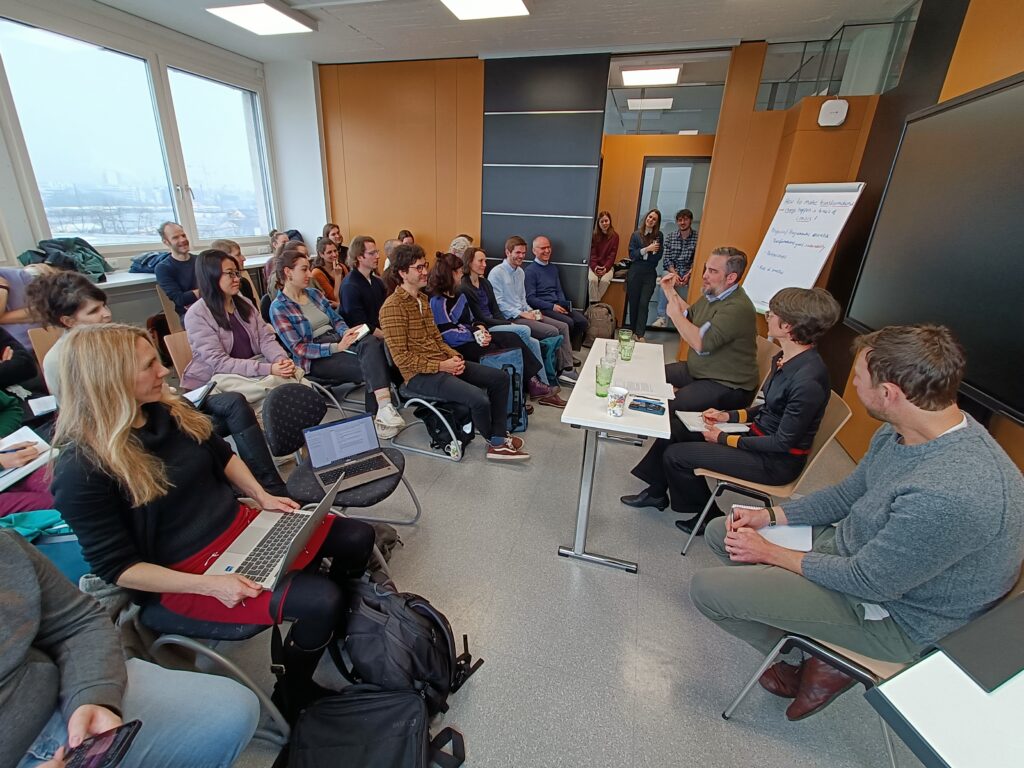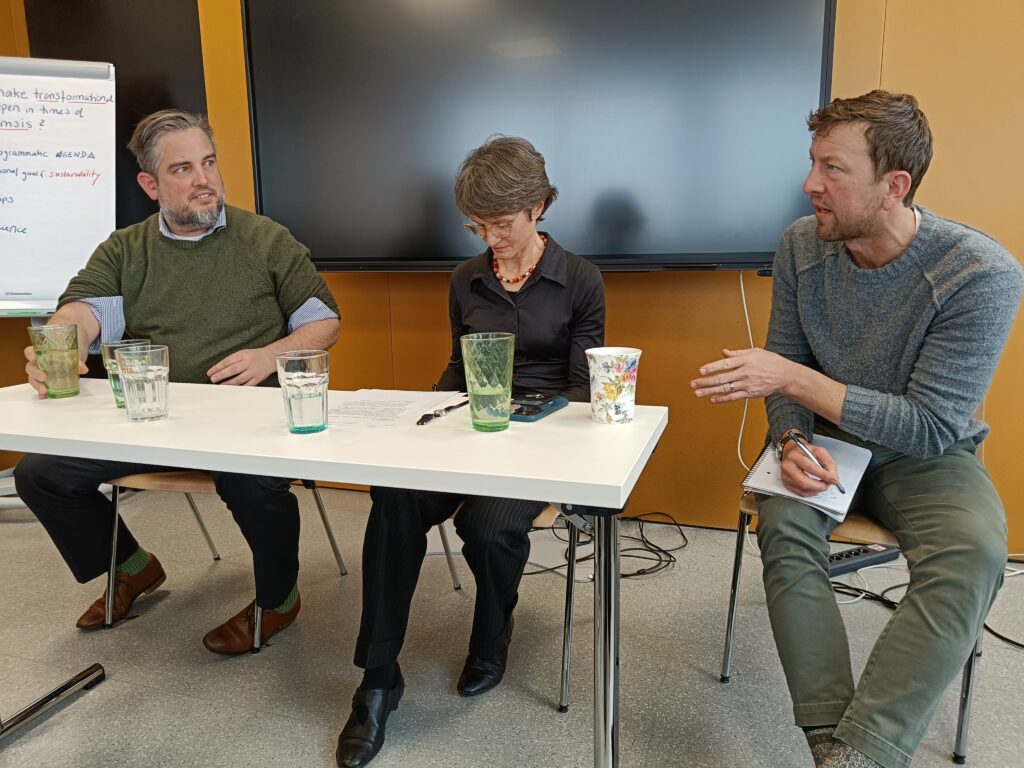City-University Partnerships for Transformational Sustainability
On February 10, 2025, Dr. Braden Kay (California/USA) and Fletcher Beaudoin (Oregon/USA) engaged in a discussion with researchers and students on the topic How to Make Transformational Sustainability Changes Happen in Times of Crisis. The event was hosted by Prof. Dr. Arnim Wiek, Humboldt Professor for Sustainable Food Economy, and Dr. Katja Brundiers from the Research Group Transformational Sustainability Science.

Kay and Beaudoin have many years of experience in developing city-university partnerships for sustainability across various U.S. cities, particularly in Portland (Oregon) and Tempe (Arizona). Their discussion centered on how such partnerships can foster successful sustainability transformations even under challenging political, social, and economic conditions. In doing so, Kay and Beaudoin presented several key principles of their work, which they consider essential for effective collaborations between universities, cities, and local institutions:
- Establish a Strong Foundation:
Cities often seek collaboration with universities to address pressing sustainability challenges. Despite time constraints, however, establishing resilient structures for cooperation should take top priority. Well-resourced projects are more likely to succeed, and their successes can spark further transformation processes and generate a self-reinforcing momentum. According to Kay and Fletcher, those who invest time in laying a solid foundation at the outset can accelerate the transformation process in the long run.
- Prioritize the Needs of Partners
In collaborating with practitioners, researchers often start with the question: “What expertise can I offer?” Instead, they should ask, “What challenges are my partners facing, and how can science help address them?” After all, universities can play a key role in sustainability transformations in many ways – through background research, data collection and analysis, forecasting, or by preparing information for policy decision-making. Most importantly, science takes on a critical function as a trusted knowledge broker by providing well-founded analyses that remain valid beyond political cycles.
- Science Transfer is a Reciprocal Process
Scientific research not only facilitates transformative change but also benefits significantly from engagement with practitioners. For instance, applying scientific knowledge in real-world contexts compels researchers to refine and adapt their theories, models, and methods to fit the specific circumstances. Engaging with a complex political environment can offer scientists new perspectives and heighten their awareness of the transformative impact their research can have – even under often challenging political or societal conditions.
